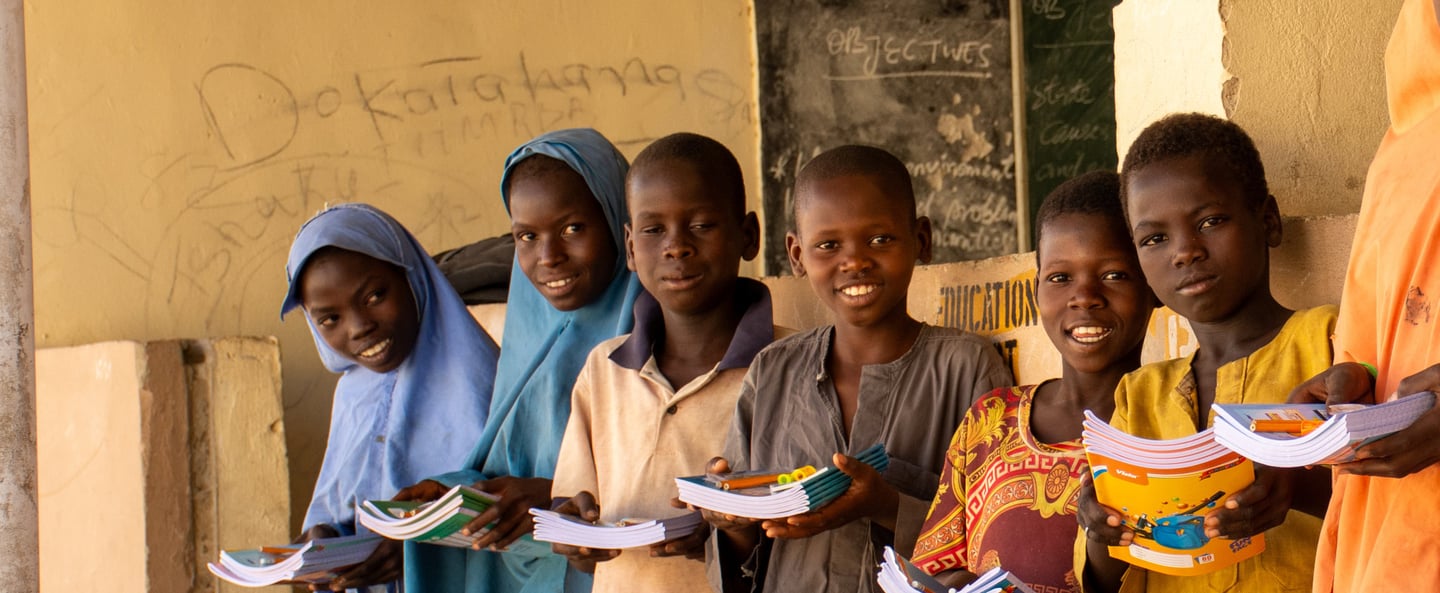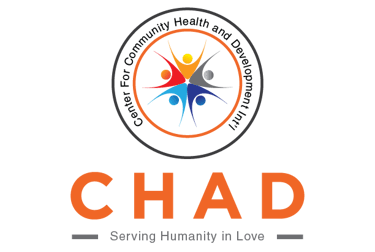

Strengthening Resilience through Multi Sectoral Response (SRMSR) Gwoza 2024 - 2026
FACT SHEET
Education in Emergencies
last Updated: June 11, 2025
Photo: Michael Usen for CHAD International
The International Rescue Committee (IRC) Nigeria Education Sector, in partnership with CHAD International, is actively implementing strategic education interventions in Borno State to enhance access to safe, inclusive, and quality education. Central to this effort is the ECHO-funded Strengthening Resilience through Multi-Sectoral Response (SRMSR) project, which spans Borno, Zamfara, and Sokoto States in Northeast and Northwest Nigeria.
Funded by the European Union
Key Achievements
The SRMSR project has made notable strides in addressing educational gaps in conflict-affected areas through:
The establishment of safe learning environments for both in-school and out-of-school children.
Strengthening local teaching capacity through focused training on pedagogy, inclusive practices, and child protection.
Enhancing community resilience by equipping local structures with the tools and knowledge for emergency preparedness and educational continuity
Project Overview
The SRMSR project is designed to support more than 6,000 school-aged girls and boys in Gwoza LGA, Borno State, by creating safe, child-friendly learning environments. In alignment with ECHO's multi-sectoral approach, the project integrates Education, Protection, WASH, Health, and Nutrition services to holistically respond to the needs of conflict-affected children and their communities. This project builds upon the successes of the recently concluded ECHO PIRCAP project, expanding the reach and depth of humanitarian programming in Gwoza. The implementation covers eight communities, namely: Gwoza Wakane, Gavisga, Ajari, Lagwa, Bayan TC, REB, Gadamayo, Hausari
Programmatic Approach
The education component of the SRMSR project utilizes a dual-pronged approach:
Remedial Learning Programs for in-school learners in P5 and P6
Accelerated Basic Education Program (ABEP) for Out-of-School Children
These interventions are facilitated by trained Learning Facilitators and Tutors, who deliver sessions aligned with national curriculum standards and ABEP frameworks. The project also emphasizes teacher professional development, child safeguarding, and community engagement through structured capacity building sessions.
LEARNERS REACH & CAPACITY BUILDING
The SRMSR project has made notable strides in addressing educational gaps in conflict-affected areas through:
450 in-school children (239M, 211F) enrolled in remedial classes.
1,560 OOSC (748M, 812F) participating in ABEP sessions.
39 Learning Facilitators (23M, 16F) trained, with a focus on learner-centered methodologies and safeguarding.
15 Formal school teachers (7M, 8F) trained.
Distribution of scholastic and instructional materials to 450 remedial learners and 15 centers.
48 ABEP learners (20M, 28F) referred for specialized services through coordinated multi-sectoral service pathways (Health, Child Protection, WPE).
Ongoing monitoring, mentorship, and coaching of learning facilitators.
CHAD INTERNATIONAL
Address
Damboa Road, Opposite Baba SAS House, beside INEC Office, Maiduguri, Borno State
Contacts
+2348035754679
info@chadint.org
chad.international@gmail.com
